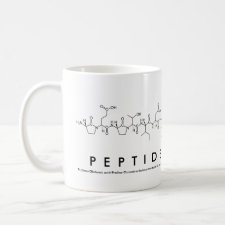
Authors: Rachkov A, Minoura N
Article Title: Recognition of oxytocin and oxytocin-related peptides in aqueous media using a molecularly imprinted polymer synthesized by the epitope approach.
Publication date: 2000
Journal: Journal of Chromatography A
Volume: 889
Issue: (1-2)
Page numbers: 111-118.
DOI: 10.1016/S0021-9673(00)00568-9
Alternative URL: http://144.206.159.178/ft/553/20029/361357.pdf
Abstract: An artificial polymeric receptor prepared by the epitope approach of molecular imprinting was shown to recognize the peptide hormone, oxytocin, in aqueous media. The proposed approach is based on using (as a template) a compound, whose structure represents a small exposed fragment of a larger molecule (as an epitope represents an antigen). A HPLC study has demonstrated the important role of ionic interactions and the N-terminal amino group of oxytocin and oxytocin-related peptides in the process of their recognition by the molecularly imprinted polymer in the aqueous-rich media. However, the specificity of the process is considered to be defined by hydrophobic interactions and hydrogen bonding. Moreover, it was shown that the selectivity of the molecularly imprinted polymer can be attenuated by water content, ionic strength and pH of the chromatographic mobile phase: depending on these factors the template, Tyr-Pro-Leu-Gly-NH,, or, for example, oxytocin, a larger peptide, which possesses the same three amino-acid C- terminal parts of the structure, can be preferentially retained by the molecularly imprinted polymer. (C) 2000 Elsevier Science B.V. All rights reserved
Template and target information: peptide, epitope, oxytocin



Join the Society for Molecular Imprinting

New items RSS feed
Sign-up for e-mail updates:
Choose between receiving an occasional newsletter or more frequent e-mail alerts.
Click here to go to the sign-up page.
Is your name elemental or peptidic? Enter your name and find out by clicking either of the buttons below!
Other products you may like:
 MIPdatabase
MIPdatabase









